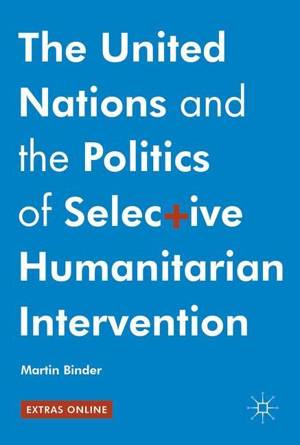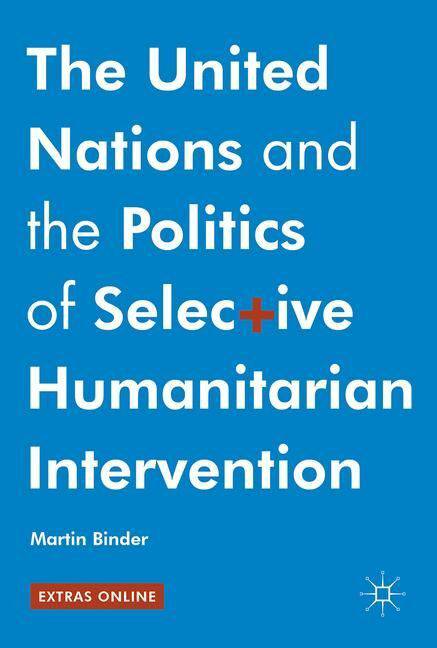
- Afhalen na 1 uur in een winkel met voorraad
- Gratis thuislevering in België vanaf € 30
- Ruim aanbod met 7 miljoen producten
- Afhalen na 1 uur in een winkel met voorraad
- Gratis thuislevering in België vanaf € 30
- Ruim aanbod met 7 miljoen producten
Zoeken
The United Nations and the Politics of Selective Humanitarian Intervention
Martin Binder
Hardcover | Engels
€ 116,45
+ 232 punten
Uitvoering
Omschrijving
This book offers the first book-length explanation of the UN's politics of selective humanitarian intervention. Over the past 20 years the United Nations has imposed economic sanctions, deployed peacekeeping operations, and even conducted or authorized military intervention in Somalia, Bosnia, or Libya. Yet no such measures were taken in other similar cases such as Colombia, Myanmar, Darfur-or more recently-Syria. What factors account for the UN's selective response to humanitarian crises and what are the mechanism that drive-or block-UN intervention decisions? By combining fuzzy-set analysis of the UN's response to more than 30 humanitarian crises with in depth-case study analysis of UN (in)action in Bosnia and Darfur, as well as in the most recent crises in Côte d'Ivoire, Libya and Syria, this volume seeks to answer these questions.
Specificaties
Betrokkenen
- Auteur(s):
- Uitgeverij:
Inhoud
- Aantal bladzijden:
- 297
- Taal:
- Engels
Eigenschappen
- Productcode (EAN):
- 9783319423531
- Verschijningsdatum:
- 4/01/2017
- Uitvoering:
- Hardcover
- Formaat:
- Genaaid
- Afmetingen:
- 155 mm x 211 mm
- Gewicht:
- 498 g

Alleen bij Standaard Boekhandel
+ 232 punten op je klantenkaart van Standaard Boekhandel
Beoordelingen
We publiceren alleen reviews die voldoen aan de voorwaarden voor reviews. Bekijk onze voorwaarden voor reviews.











